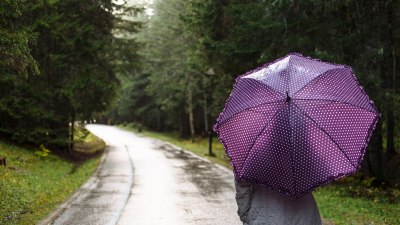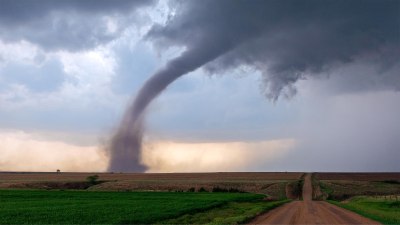Can You Smell Rain Coming? The Truth Behind That Fresh Scent
Discover the science behind the fresh, earthy smell before rain. Learn what causes the scent of rain and why some people can detect a storm before it arrives.

This image was created with the assistance of DALL·E
Many people claim they can "smell rain" before it actually starts to fall. This fresh, earthy aroma that fills the air before a storm is not just imagination—it has a scientific explanation. The scent of rain comes from a combination of factors, including soil bacteria, plant oils, and ozone in the atmosphere. Let’s explore what causes this fascinating natural phenomenon.
The Role of Petrichor: The Earthy Smell After Rain
The most recognizable smell associated with rain is called petrichor. This term, coined by scientists in the 1960s, refers to the distinct, earthy scent that emerges when raindrops hit dry ground. The smell is produced by actinomycetes, a type of soil-dwelling bacteria that releases compounds called geosmin when disturbed by moisture.
Geosmin is highly sensitive to the human nose, even in very small concentrations. This is why the scent of petrichor can be so strong, especially in dry regions where rain is infrequent.
Ozone: The Sharp, Fresh Smell Before a Storm
Another scent people often associate with incoming rain is ozone. Ozone is a molecule made up of three oxygen atoms (O3), and it has a sharp, fresh smell similar to chlorine. Before a storm, lightning and electrical activity in the atmosphere break apart oxygen molecules, which then reform into ozone. Winds carry this scent down to the ground, allowing some people to detect the approaching storm.
Plant Oils and the Smell of Rain
In addition to bacteria and ozone, plant oils contribute to the scent of rain. During dry weather, plants release oils that accumulate in the soil and on surfaces. When it rains, these oils are released into the air, creating another layer of the familiar rain scent. This effect is particularly noticeable in forests and grassy areas.
Why Some People Can Smell Rain Better Than Others
Not everyone is equally sensitive to the smell of rain. Factors like genetics, age, and environmental exposure play a role in how well a person can detect petrichor and ozone. People who live in dry areas may have a heightened sensitivity because they experience rain less frequently, making the scent more noticeable.
How Long Does the Rain Smell Last?
The scent of rain is usually strongest just before and during the first few minutes of a downpour. Once the rain has washed away the soil particles and airborne compounds, the smell begins to fade. However, after heavy rainfall, the lingering scent of damp earth and vegetation can last for several hours.
Can You Bottle the Smell of Rain?
Scientists and perfumers have attempted to replicate the smell of rain in artificial fragrances. Some perfumes and air fresheners contain synthetic geosmin and ozone compounds to mimic petrichor. However, capturing the exact experience of standing outside before a storm is difficult, as natural rain scent is influenced by multiple environmental factors.
Conclusion
Yes, you really can "smell" rain coming, and it’s all thanks to a combination of petrichor, ozone, and plant oils. These natural compounds create the fresh, earthy aroma we associate with rain. So the next time you sense that distinctive smell in the air, you'll know it's not just your imagination—it's science at work.











